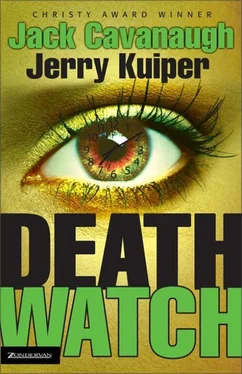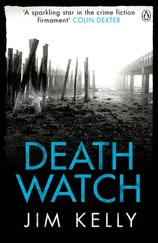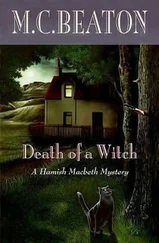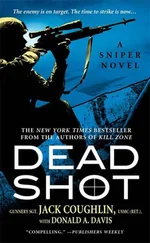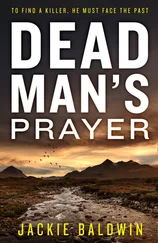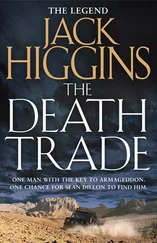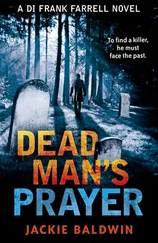“I have a lead,” Hunz said. He was so eager to tell what he had, he trampled all over the end of Helen’s question.
A thin leather binder and a manila folder lay in front of him on the table. It was the same folder he’d picked up at the FBI field office. The tab at the top was marked CONFIDENTIAL. Pushing aside the FBI folder, he opened the leather binder and shuffled some loose papers.
“My team in Berlin and I think we may have a promising lead,” he said. His papers in place now, he looked up. Confident. Assured. As he spoke, he directed his comments to Sol Rosenthal and Grant Forsythe. “To begin: Whoever is doing this has to have vast resources with operatives in every major city of the world. That eliminates a lot of groups.”
“Al Qaeda, for one,” Grant said.
“Exactly. Even before the US invaded Afghanistan, I doubt al Qaeda had the resources to execute something of this size and scope. It has to be someone with almost unlimited resources.”
“Wait a minute,” Sol Rosenthal said. “You’re not going where I think you’re going with this, are you?”
Hunz didn’t respond. He let Sol answer his own question.
“You’re not thinking the United States is behind this,” he said. “The army? The CIA?”
Hunz Vonner squared his shoulders and looked Sol Rosenthal in the eye. “We haven’t ruled that out,” he said.
Helen said, “But what possible reason would—”
Hunz cut her off. “There’s a more likely candidate,” he said, “though you have to admit the United States is one of the few entities in the world that has the resources to do something on the scale of Death Watch.”
“As do several other major countries,” Helen said.
“So who do you think it is?” Sol frowned.
Hunz Vonner paused like a television detective does just before revealing the identity of the murderer.
“His name is Feliks Baranov,” Hunz said.
“That name’s familiar,” Helen said.
Hunz nodded. “You probably know him from when he was a general in the army of the Soviet Union.”
“Part of the attempted coup when Gorbachev was vacationing in the Crimea,” Helen said.
Hunz nodded. “A hardliner who violently opposed Gorbachev’s glasnost and perestroika initiatives.”
“Openness and reform,” Grant said, eager to demonstrate he knew the meaning of the words.
“So you think it’s the Russians who are—,” Cori said.
“Russians, yes,” Hunz said. “But not the government. The Russian mafia.”
After a moment of stunned silence several questions were fired at Hunz at once. He waved them off.
“Hear me out,” he said. “I know at first it sounds like a 1950s movie plot, but only to people who don’t know the facts of the modern Russian mafia. Hear me out before dismissing the idea.”
Hunz took their silence for consent.
“After the failed coup against Gorbachev in 1991, General Baranov managed to elude capture. He disappeared, but he didn’t go away. We have documents indicating he teamed up with Vassily Sorokin.”
“The Russian mafia kingpin,” Grant said.
“Over the years they built an organization that literally spans the globe. Believe me when I say they are a viable world power. They own banks. They purchase weapons from the Russian army to supplement what they make in their own weapons factories and then sell them on the black market. They are established in Western and Eastern Europe, Canada, the Middle East—primarily Israel—and nearly every country in Africa. In South America they have established links with the largest drug cartels. Companies who do business in Russia routinely pay them up to 20 percent of their profits. And according to Swiss court documents, they have laundered over sixty billion dollars through Swiss banks. Baranov and Sorokin have more money and more resources than most countries.”
He patted the FBI manila folder.
“The Russian mafia has what they call combat brigades in major US cities—New York, Miami, Houston, and here in Los Angeles. Their daily bread and butter includes extortion, counterfeiting, drug trafficking, arms dealing, prostitution, contract killings, and blackmail. Recently the head of the FBI identified the Russian mafia as the greatest threat to American national security. It’s a matter of record.”
Hunz had their attention.
“This Baranov character,” Sol said, “you think he’s trying to take over the world?”
“Is that so hard to believe?” Hunz leaned forward, his expression intense. “That was his goal when he was a general of the Soviet Union. And while his country has changed, he hasn’t. What better way to announce a new world order than with thousands of precision deaths proving that no one is out of his reach?”
“Are they taking credit for these death watch killings?” Helen asked.
Grant Forsythe scoffed. “Who isn’t claiming credit for death watch notices now?” He produced a sheet of his own and read. “The Hamas. The Felix Cordova drug cartel. Abu Sayyaf, the Philippine guerilla outfit. The Islamic Liberation Front. The Japanese Red Army. As for pointing the finger at others: Islamic leaders are blaming Christians and Jews; Christian television preachers say it’s a fulfillment of prophecy and that the Muslims are behind it all. There’s even a group of militant senior citizens in New Jersey who say the killings will continue until their Medicare benefits are increased.”
“To answer your question,” Hunz said to Helen, “no, the Russian mafia has not claimed credit for the deaths. However, it’s early. They specialize in terror. You have to understand the mentality of these people. They’ll shoot you just to see if their gun works.”
“All right,” Sydney said. “Let’s assume the Russian mafia is behind this. How are they doing it? Last night Lyle Vandeveer died at precisely the instant they said he would.”
Hunz pulled out a photograph from the manila folder and tossed it into the center of the table. “Yuri Kiselev,” he said. “Scientist. Disappeared two months ago.”
The man in the black-and-white photo was a pale, hollowcheeked Russian with piercing eyes and a bad comb-over.
“You think Baranov grabbed him,” Sol said.
“That, or he went willingly. It’s sketchy, but Baranov and Kiselev knew each other during their Soviet days. Kiselev worked with the army to develop experimental weapons. Baranov was the head of that project.”
“What kind of weapons?” Helen asked.
“At this point, it’s speculation,” Hunz said. “The project simply provides a possible tie between the two men. It’s what happened after the collapse of the Soviet Union that’s important. Yuri Kiselev is Russia’s foremost authority in an emerging technology.”
“Nanotechnology,” Grant Forsythe said, stealing Hunz Vonner’s thunder.
“What’s that?” Cori asked.
Hunz looked to Grant. The silent exchange had an edge to it. Did Grant want to field the question? The coanchor deferred to Hunz.
“Basically,” Hunz said, “nanotechnology is an attempt to manufacture products on the atomic level, arranging atoms as though they were colored Lego bricks. Kiselev is experimenting with molecular robotics. He’s building devices that are one one-thousandth the width of a human hair. These machines—called nanobots—are then inserted into the human bloodstream.”
“You asked Mr. Vandeveer if he’d had an injection recently,” Sydney said.
Hunz nodded. “We believe they may be contaminating batches of popular medicines with nanobots. A person goes in for a flu shot and they get a programmed molecular robotic injected into their bloodstream.”
“Is that possible?” Helen asked.
“Scientists the world over are working on nanotechnology. Some of the projects on the drawing board are to use them to clean arteries, repair DNA, repair damaged cells, find and eliminate viruses, and even clean the inside of our lungs.”
Читать дальше
